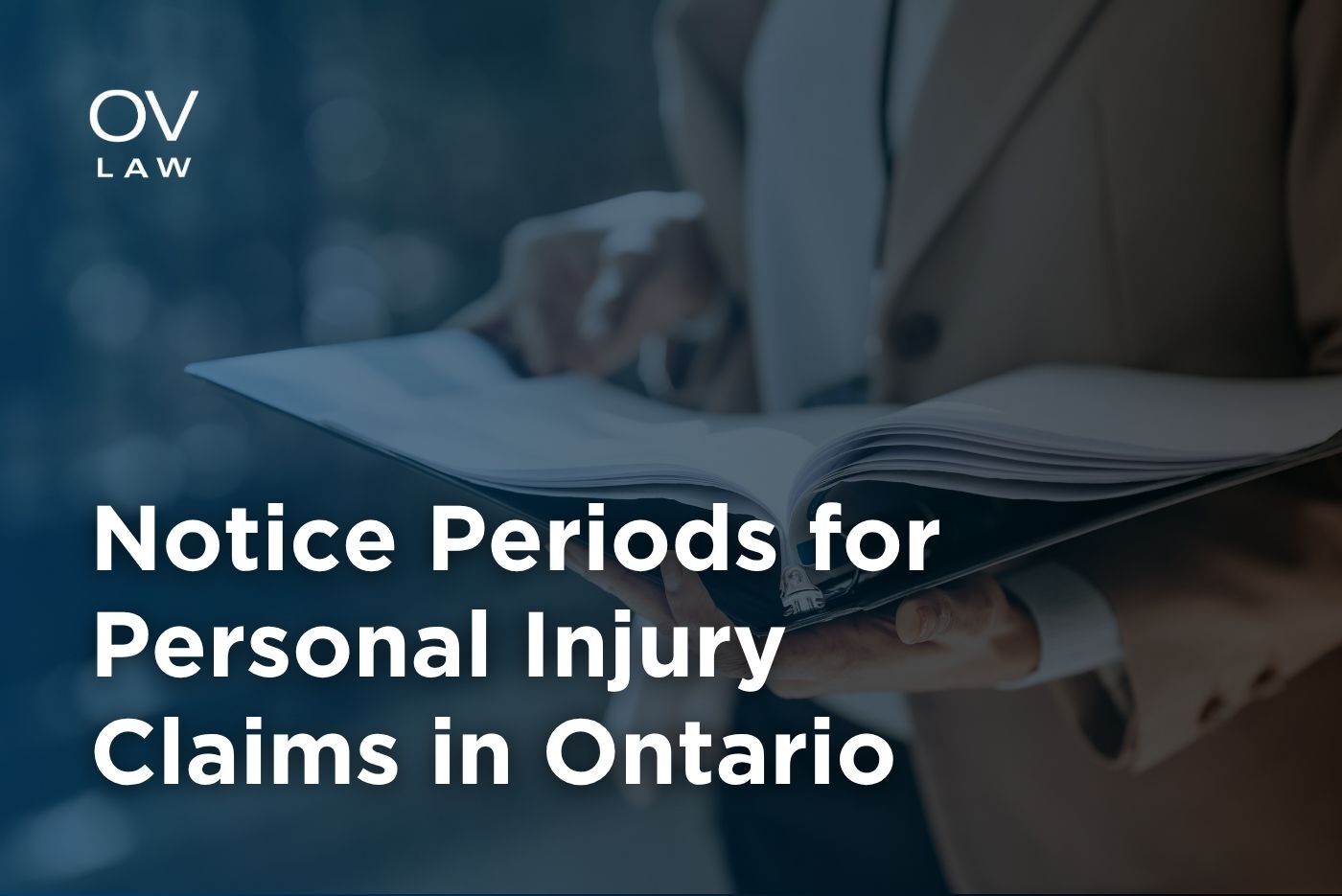Notice Periods for Personal Injury Claims in Ontario

Notice periods for personal injury claims in Ontario fall into two categories – optional and mandatory. While complying with optional notice periods can be helpful in some cases, failing to comply with mandatory notice periods can have significant consequences.
Notice periods are not the same as limitation periods. Notice periods are satisfied by simply sending a letter or notice to a prospective lawsuit. A limitation period is not satisfied until a claim is commenced against a potential defendant.
Optional Notice Periods
Notice periods in some types of claims are not particularly important. For example, in a motor vehicle collision case, you do not need to put a party on notice before bringing a claim. However, pre-judgment interest does not begin to accrue in a motor vehicle collision case until notice is provided to the defendant.
In the case of a trip and fall against a private entity or a business, there is no legal advantage to providing early notice. However, it can be helpful to provide notice at an early stage so that evidence such as surveillance footage is lost or the names of material witnesses are forgotten.
While it is advisable to follow these notice periods, there is no impediment to suing a negligent party for damages if the notice period is not followed.
Mandatory Notice Periods
There are two primary notice periods that must be complied with. The first is a 10 day notice period pursuant to section 44(10) of the Municipal Act. This notice period arises in the event you are injured as a result of disrepair of a municipal property.
While the notice period is mandatory, failure to comply is not 100% fatal to bringing a lawsuit. There are circumstances where it can be extended. The injured party must show that there was a “reasonable excuse” for the delay, and that the municipality is not prejudiced by the delay.
There have been several cases that have considered what might constitute a “reasonable excuse”. These include the seriousness of the injury (if that could have prevented the party from providing notice) or situations where the party did not realize the permanence of their injuries.
One excuse that is never acceptable to the court, however, is the lack of awareness of the notice period.
The second mandatory limitation period is for slip and falls on ice and/or snow on private property. In 2021, the Occupiers’ Liability Act was amended to impose a 60-day notice period for these claims.
While there has been limited litigation with respect to the new 60-day notice period, its wording is similar to that of the 10-day notice period in the Municipal Act, so it is likely that it could be extended in similar circumstances.
If You’re Injured, Contact Our Office
If you’ve been injured in an incident where a notice period applies, it is essential to contact a personal injury lawyer as soon as possible. Contact our office today for a free consultation.
Contributors

The son of a grocery store clerk, Kevin grew up outside of Perth, Ontario. He credits his humble beginnings with the development of his underdog mentality, an approach he has carried into his legal career.
He attended McMaster University for two years before being granted early admission to Osgoode Hall Law School. After being called to the bar in 2008, Kevin began practising law in Hamilton before joining a leading Toronto litigation firm, representing Canada’s largest insurance companies on personal injury actions. “I didn’t find it fulfilling,” Kevin recalls. “I was helping companies save money, when what I wanted to do was help the people going up against these major corporations.” Since joining Oatley Vigmond, Kevin has used his insurance-industry experience to protect his clients and recover the compensation they deserved. He’d been at Oatley Vigmond for two months when he settled a matter for a client at a mediation. “You felt the burden of the litigation, and her injuries, lifting off her. I wanted to help even more people experience the relief of having their uncertainty lifted.’”
